This article was first published on WeChat public account: Chinese business strategy. The content of the article belongs to the author's personal opinion and does not represent the position of Hexun.com. Investors should act accordingly, at their own risk. After nearly two years, after the “interrogation†of 11 national investment review institutions, such as the US CFIUS (US Foreign Investment Committee), after the review of 20 countries and regional anti-monopoly agencies in the United States and the European Union, the largest M&A case in Chinese history finally announced. carry out. On June 8, China National Chemical Corporation announced that it had completed the acquisition of the second share of Swiss Syngenta. The group currently holds a 94.7% stake in Syngenta, and the next step is to promote Syngenta's delisting (including the Swiss Stock Exchange and the NYSE). This means that the acquisition of 43 billion US dollars (about 292.4 billion yuan), has encountered many parties, especially the United States related departments "obstructed" mergers and acquisitions, finally settled. 1 China National Chemical Corporation is China's largest chemical company, and ranked 234th in the Fortune Global 500. In 2016, its revenue was 300.1 billion yuan and its total assets were 377.6 billion yuan. Pesticides and seeds are the core business of Syngenta. This seemingly “original†business, why is it so painstaking for China Chemical? Pesticides belong to the agrochemical industry, and seed technology belongs to the life sciences. They are all part of the big chemical industry. Chemical industry is a long-established industry. After learning to use fire, humans have not left the chemical industry. The chemical industry and people's livelihood are closely related to clothing, food, shelter and transportation. Without chemical industry, human beings have to return to the Stone Age. China is a big chemical industry. In 2015, the chemical industry accounted for more than 20% of the country's total GDP, far exceeding the real estate industry. But China is not a chemical power, and the world's chemical powers are the United States, Germany, Japan and France. The chemical giants in these countries, with annual revenues of tens of billions of dollars, are hidden behind consumer brands and quietly envelope everything in your life: You drank the water treated by Dow Chemical, lived in the green building brought by Dow technology, and tore open all kinds of bags that Dow offered; You are eating the food cultivated by the "Zheng Zhengda" agrochemicals. The house is planted with the green plants developed by Syngenta seeds, and even the green belts in the city are inextricably linked with the company; When you are sick, the "Bayer" medical machine will help you diagnose. The doctor's prescription says Bayer's medicine. When you have a fever, you may have a Bayer's aspirin. You watched TV, newspapers and magazines, celebrities and mouths arguing over the GM seeds of Monsanto, but noisy and noisy; You go out with a "3M" mask, the home dish cloth and mop are all 3M advanced products, and the bedroom wall has 3M soundproofing material; You drive a car with "Honeywell" nylon resin in the parts. When the plane goes wrong, you must retrieve Honeywell's black box. The "top" of these chemical giants, as well as a BASF in Germany. In 2016, BASF's annual revenue of 787 billion US dollars is still the largest chemical company, and the downstream industries involved in its six departments are hard to count. 2 The chemical industry “coordinates†all industries, but the industry itself is facing the biggest reshuffle in recent decades. In the past two years, three major events have occurred in the industry, including the merger of Dow Chemical and DuPont; Bayer's acquisition of Monsanto; and China Chemical's acquisition of Syngenta. In December 2015, Dow Chemical and DuPont suddenly announced a merger, the new company named Dow DuPont, each holding 50% of the shares. In order to complete the largest merger and reorganization case in the history of global chemical industry, the two companies are responsive to various policy restrictions. For example, in order to meet the anti-monopoly needs of the European Commission, DuPont simply chose to sell the pesticide business and research and development results, Dow Chemical surrendered the acid copolymer and ionomer business. Among the various analysis reports, The Wall Street Journal gives a more interesting point. The report believes that China's development ambitions in the global chemical industry and the overcapacity of chemical products caused by China's economic slowdown have brought about a drastic change in the global chemical industry, prompting large chemical companies to warm up or integrate. One of the most critical points is that Chinese chemical companies, once focused on meeting domestic demand, began to seek export-led development, which led to a decline in the prices of many chemical products worldwide. The Wall Street Journal specifically mentioned the China National Chemical Corporation, saying that the company is known around the world for its size and influence. In the past 10 years of strong demand, many small businesses in China have flooded into the market and acquired some professional skills. Now, a large enterprise like China National Chemical Corporation hopes to upgrade its professional skills to the world's leading level. Not long after this report was released, China Chemicals made a more “famous global†move: on February 3, 2016, China Chemical and Syngenta Syndicate issued a joint statement to complete the acquisition of the latter for US$43 billion. . The acquisition of Syngenta is essentially the same as that of Chinese real estate and energy companies in overseas mergers and acquisitions. They all use domestic capital advantages to conduct bargain-hunting during the low tide of overseas economics. After the oil price plummeted, major agricultural companies in the United States and Europe were in a state of recession. In early 2015, Dow DuPont’s R&D department was smashed, and Monsanto was reorganized in the middle of the year. Syngenta is also experiencing difficulties. From 2011 to 2013, the company's profit growth rate continued to decline, and in 2014, the global layoffs of 1,000 people. Shareholders are very dissatisfied with the company's development situation, the old rivals took the opportunity to start, BASF and Monsanto have taken huge sums to acquire Syngenta. After Syngenta rejected these offer, it triggered internal management turmoil, and President Mike Mark resigned, which led to the follow-up story of China Chemical's half-way killing and successful bottom-hunting. 3 Syngenta is not actually "married." The company has 107 production and supply bases and 119 R&D bases in 90 countries and regions, with 28,000 employees and more than 5,000 R&D personnel. Syngenta invests nearly 10 billion RMB in research and development each year, and has more than 13,000 patents worldwide. Both BASF and Monsanto have given high purchases, and the latter’s offer is as high as $47 billion, which is higher than the China National Chemical Corporation, but they were rejected. Interestingly, Monsanto, the “acquisitioner†of the incident, soon became the acquirer. On September 14, 2016, Bayer announced that it has acquired Monsanto in a cash-only manner with a total transaction value of US$66 billion. After the acquisition, Bayer officially became the world's largest agrochemical product and seed company. The three acquisitions/reorganizations have redefined the pattern of the global chemical industry, and China Chemical is also considered to have seized important historical opportunities. The importance of this acquisition for China National Chemical Corporation and even China's agriculture is very obvious. Previously, pesticides developed by giants such as Syngenta, Bayer and BASF accounted for 80% of the global market. China has a huge demand for pesticides, but there is no basic research and development capability for the original drug. Only the original drug can be purchased and then configured. There are thousands of pesticide manufacturers in China, but it is only a processing factory. This mode is low in profit and second in people. Syngenta's market and R&D team have effectively solved the urgent needs of the Chinese industry. On the other hand, China National Chemical Corporation has been striving to find opportunities to enter the seed industry for many years. The seed industry has the characteristics of large investment, long cycle and high risk, and the entry threshold is very high. According to statistics, the average annual development of each new species takes 8-10 years, with an average cost of 130 million US dollars. The acquisition of Syngenta can have leading seed technology and abundant germplasm resources to make up for the gap in China's chemical seed business. “Three barrels of oil†and “Nine Courtyards†have some mainstream technologies, but they are still inferior to the international. Many domestic crafts are bought from abroad for modification and packaging. Advanced chemical technologies, including agrochemicals and medicines, are mainly held in the hands of international giants such as BASF, Dow DuPont, Bayer and Monsanto, and the gap is still widening. How Chinese companies make international breakthroughs is a common topic. In many industries, it is not realistic to develop themselves step by step and catch up from scratch. The Chinese business strategy has introduced the technological development of many industries such as medicine and semiconductor. The technological breakthroughs in these industries have extremely high thresholds: The annual R&D investment of an IC process in Intel exceeds 10 billion US dollars. BASF's annual investment in research and development has never been less than 10 billion US dollars. In such a rule, the stronger the stronger, the later ones can only go low. , fight the price, fight the channel, say that the ugly point is the leftovers of the food industry. For domestic companies, the best opportunity is to start international cooperation and even mergers and acquisitions, through "buy" Key technologies and resources, exerting domestic channels and market effects, and launching new R&D on the basis of this, taking a “shortcutâ€. In the domestic chemical industry and even in all industries, the most good at this is the China National Chemical Corporation. Since its international operation in 2006, China National Chemical Corporation has acquired 9 leading companies in France, Britain, Germany, Italy and Israel, and its performance after the merger is quite good. This Chinese company is also considered to be the most likely to break the world's existing chemical landscape. What is less well known is that this company, nowadays swaying in the international market, was originally created by a young man who borrowed 10,000 yuan. 4 China National Chemical Corporation is a state-owned enterprise and its chairman is Ren Jianxin. State-owned enterprises have actually gathered a lot of top talents, and Ren Jianxin is one of the representative figures. He is in charge of nine A-share listed companies, nine overseas companies, and more than 100 subsidiaries, but he does not hold shares in any one company. A few years ago, some media said that their annual salary was 220,000 yuan. Ren Jianxin ranked fifth among Fortune’s list of the 50 most influential business leaders in China. In front of him are Ma Huateng, Ren Zhengfei, Zhang Shiping and Ma Yun. The topicality of these four people is far more than that of Ren Jianxin, and they are even more "skilled". However, Ren Jianxin is very special compared to other group members. Many state-owned enterprise leaders, like civil servants, rotate between major state-owned enterprises. Ren Jianxin has been in the "Chinese chemical industry" system for 32 years. The British "Financial Times" said that Ren Jianxin is a true entrepreneur, because the development of China's largest chemical company has a continuous relationship with its "white-handed entrepreneurship." Ren Jianxin was born in Lanzhou, Gansu Province in 1958 and grew up in the "Cultural Revolution." Like many young people of that era, he went to the countryside when he was a teenager, where he learned to farm and understand the ideas of farmers. After the college entrance examination resumed, Ren Jianxin was admitted to Lanzhou University and entered the Ministry of Chemical Industry after graduation. In 1984, 26-year-old Ren Jianxin discovered a strange set of data: China consumes 8 million tons of raw coal per year due to boiler fouling, which is equivalent to half of coal production at that time. The fundamental reason is that clean technology is lagging behind. After understanding this set of data, Ren Jianxin remembered that the Institute had previously had a technology called “Lan5â€, a nitric acid pickling inhibitor. This innovation has won awards and theoretically solves the problem of boiler fouling. But after the award, the innovation was locked in the safe for five years. At that time, in China, the market for such cleaning technology was completely blank, and the external price of this patent of the Chemical Machinery Institute was 250 yuan. Ren Jianxin wants to take technology to start a business. He borrowed 10,000 yuan from his family as a mortgage. He signed a military order for this purpose: if it fails, it will sell the property as compensation, and will voluntarily lower the position and lower the salary. In the dilapidated bomb shelter of the Machinery Research Institute, Ren Jianxin took the seven Communist Youth League members to the sea and founded the Chinese Blue Star (BuleStar). He has no concept of a company, just thinking about adding some income to the chemical machine. Although he signed the military order to get the money, he was the founder of the cause, but still regarded the blue star as the "property" of Gansu chemical industry. In a coal mine on the outskirts of Xining, the Blue Star team began to free the miners to clean the teapot scale in the home. They cleaned some old teapots as clean as new ones. An old lady saw the young guys working hard and gave him two cents. This money became the first income of Bluestar. The spirit of Lei Feng was very popular in that era, and the deeds of Ren Jianxin were quickly spread around. Not long after, the nearby coal mine leaders found Ren Jianxin: there is a heavy-duty boiler near the end of the mine. You tried to clean it and became paid. If it fails, it will be scrapped. After receiving the instructions, the Blue Star team started work overnight, allowing the “waste boiler†to come back to life. After this order, Ren Jianxin received a reward of 1,900 yuan. Waste boilers are a traditional problem in the coal industry. Previously, the cleaning work of the boilers was not complete, and the coal scale accumulated quickly, resulting in a short boiler life. The “Lan5†technology effectively solves this problem and greatly increases the service life of the boiler. Made the first "big sale", Blue Star's "high technology" has been widely spread in the coal industry. It didn't take long for the letters and telephones of the inquiries to come. In the first year, Bluestar realized a net profit of 240,000 yuan. In the following years, Bluestar expanded rapidly, and the “Lan5†technology was also promoted from the coal industry to all walks of life. As a typical figure in entrepreneurship within the system, Ren Jianxin had no choice at the moment. "People's Daily" introduced him and Bluestar in detail on the front page headline. The title of the article is "He, created 361 lines." China did not have an industrial cleaning industry before, and all projects involving industrial cleaning were taken over by foreign companies. Ren Jianxin is the founder of this industry in China. His service price is lower and the effect is excellent. In addition, his identity within the system has obvious advantages in all aspects. Under the comprehensive factors, the industrial cleaning tasks before the start of the import of petrochemical and chemical large-scale installations during the period from the “7th Five-Year Plan†to the “Ninth Five-Year Plan†in China have all become the contents of the Blue Star. Small to teapots, big to atomic bombs, they are all-inclusive. From the oil pipeline from Qinghai to Golmud to the launching facility of Shenzhou, Bluestar has washed out an industry and washed out foreign counterparts from China. Someone asked Ren Jianxin to persuade him to carry out a share reform and privatize the Blue Star. Ren Jianxin thought about it: the founding capital is state-owned, and the company should be 100% state-owned. The goal of Bluestar is to “return to the countryâ€, and the state-owned or private sector has little impact on this goal. Therefore, this foreigner’s eyes on the plan to make money in the sky, he was abandoned. The ambition without wealth does not mean that Ren Jianxin is a "stable person." The market for industrial cleaning is limited, and Lanzhou also has certain geographical constraints. After losing the share restructuring plan, Ren Jianxin said at a meeting: We have to move our headquarters to Beijing, not only Beijing, but also to establish a headquarters abroad. 5 In 1995, Bluestar Cleaning went on the market and the headquarters moved to Beijing. Ren Jianxin will solve the problems of the housing, spouse work and school attendance of 1,800 employees. Ren Jianxin is very fond of Lanzhou's hand-made ramen. In order to solve the employment problems of his family members, he founded a Lanzhou Ramen fast food chain. Because I missed the mother's last wish to "eat a bowl of beef noodles" at the end of her life, Ren Jianxin combined her mother's surname "Ma" and "Lanzhou" and named it "Malan Ramen." Although the scale and the main business can not be compared, but Ren Jianxin is very concerned about this cause, he often hangs "ramen noodles". In 2007, he was elected as the "Economic Person of the Year". When he delivered his speech, Ren Jianxin said: "I grew up in Lanzhou. The beef noodle in Lanzhou has a deep complexion with me." When he said this, the scene of the mother suddenly appeared on the big screen, and Ren Jianxin, who was unprepared, stunned and immediately burst into tears. Ren Jianxin was elected as the "Economic Person of the Year", of course not because of Malan Ramen. He moved to Beijing in a thousand miles, not to start a fast food restaurant. Standing on the central stage of Beijing, Ren Jianxin brought Blue Star to a new height, and its core means is mergers and acquisitions. In 10 years, Blue Star has acquired more than 100 state-owned enterprises, and gradually changed from Blue Star Cleaning to Blue Star Chemical. Mergers and acquisitions of state-owned enterprises have a very distinctive feature: the objects of mergers and acquisitions are basically capital-for-debt and should be bankrupt. To take over such a company, it actually took over a "bad mess." M&A is very simple, but the “rejuvenation†after the merger is very difficult. Ren Jianxin made the merger very early. In 1990, Bluestar acquired a membrane science research institute. The state allocates funds to the institute every year, and expects it to make breakthroughs in the research of reverse osmosis membranes and pure water filtration membranes, but it has not improved. This is Ren Jianxin’s first acquisition, and he “cranked upâ€. After Bluestar took over, the incompetent cadres were dismissed, and the result caused an uproar. The relevant parties came out to intervene, some of the workers gathered to make trouble, and finally Bluestar had to "break up" with the other party. Ren Jianxin said that the lessons of this failure are unforgettable. He has been thinking for a long time, realizing that the recognition of ideas and the integration of corporate culture is the most important thing in the merger cause. In 1996, Ren Jianxin, who was on the road again, encountered new opportunities and challenges in the M&A business. In the same year, he contacted the Jiangxi Spark Factory, which has the largest domestic 10,000-ton organic silicon device, but the device has failed in 28 trials since its establishment 13 years ago. However, Ren Jianxin is not willing to give up this opportunity. A good chemical company will not take over. He only has to find "severe patients" and expand the scale of the Blue Star through the rescue of life and injury. Ren Jianxin stayed in the mountain ditch in Jiangxi for a long time. After some investigations, he found that although there were many ills in the Spark, the fundamental problem was that he did not master the core technology. After finding the dysentery, Ren Jianxin recovered all the technical backbones of the factory, and hired more than 100 internationally renowned chemical experts to diagnose the entire project. After five months of international and domestic rushing, the Sparks 10,000-ton organic silicon production line was successfully tested. After half a year, the silicone products were rolled out. In the second year, the company turned losses into profits. Today, the company has become one of the largest companies in China's chemical new materials sector. It is China's largest producer of silicones, bisphenol A and specialty epoxy resins, and its silicone production ranks third in the world. The battle of Xinghuo made Ren Jianxin famous in the Chinese industry, and this acquisition also greatly established his confidence in the integration industry. In the following period, he became a veritable "fire brigade captain." Nantong Synthetic Material Factory, Chenguang Chemical Research Institute, Wuxi Petrochemical Plant, Beijing Chemical Machinery Plant, Lanzhou Daily Chemical Plant and other “difficult†state-owned enterprises have been included in the Blue Star camp. In the more than one hundred “turning the crisis into the machineâ€, Bluestar successfully entered the field of new chemical materials and developed into the industry leader, and the corporate assets broke through the 20 billion mark. 6 The establishment of China National Chemical Corporation not only has enterprise-level management tasks, but also undertakes the task of “national†level to some extent, namely, carrying out international competition, mastering the most advanced technologies, and rushing to grab business around the world. As mentioned above, the key technologies and resources through international purchases are one of the ways for domestic companies to grow rapidly, and China National Chemical Corporation and Ren Jianxin are the best spokespersons for this approach. After the integration of China National Chemical Corporation, Ren Jianxin immediately promoted the company to the international market and launched mergers and acquisitions. Its M&A targets are the world's top or the top of the country, with a wide range of areas and almost no duplication. Ren Jianxin’s involvement in overseas mergers and acquisitions was also the beginning of Chinese companies’ going global. At that time, the forerunners TCL and BenQ suffered major setbacks, and the domestic media almost criticized the new thing of overseas mergers and acquisitions. In such a public opinion environment, state-owned enterprises aiming at "political achievements" should seek stability, but Ren Jianxin chose to go upstream. In 2006, he completed three large-scale overseas acquisitions, including the world's second largest lysine producer, Andesu Group, Australia's largest polyethylene producer, Yakanos, and the French Rhodia Group's silicone. And sulfide business. Since then, China Chemical has acquired the world's seventh largest pesticide producer, Israel's Maxim-Agam (Adama), Europe's largest light plate manufacturer REC, and the world's fifth-largest tire manufacturer, Italy's Pirelli. Through a series of mergers and acquisitions, Ren Jianxin has built China Chemical into a “super†central enterprise. In 2015, the group's revenue was 45 billion US dollars, ranking 265th in the world's top 500. Overseas mergers and acquisitions are “walking tightropeâ€, but Ren Jianxin has not made any mistakes yet. He summed up a set of strategies: buy, manage, do well, get ahead, retreat, and sell high. After the failure of the acquisition of the Membrane Science Research Institute, he has benefited from it. Ren Jianxin said: "We are going to buy, not conquer, we can't buy and manage with the attitude of an occupying army." This is actually the difference between Chinese culture and Western culture. The West believes in Caesar's "I come, I see, I conquer", while China is about "the benevolent love." At the press conference to buy Pirelli, Ren Jianxin talked about his love of Italian history and culture, and used Italian coffee to entertain all visitors. He said to the executives of the acquisition company: "I am your boss, but you are my teacher." In exchange for a US company, the board of directors immediately after the merger and acquisition of the "roll cover" is commonplace. China's "and culture" became the secret of Ren Jianxin's acquisition of European companies, and his resolute style after the merger. By maintaining independent operations and integrating the Chinese market, these M&A companies have developed rapidly, with sales and profit growth hitting record highs. In the case of Kenos, Australia, China Chemicals can recover 40% of the original investment each year, and it has declared “returning†in more than two years. PetroChina 601857, deputy secretary general of the Federation of Chemical Industry and Industry, Pang Guanglian said that this is one of the differences between Ren Jianxin and other state-owned enterprise executives: He is more concerned with performance than with political achievements. Perhaps because of this difference, Ren Jianxin has done "not enough" in some aspects. After the acquisition of Adisseo in France, the secretary prepared an impassioned speech for him. After Ren Jianxin read it, he said: Don't open champagne to celebrate the grand celebration. Such a large investment is not a small amount for enterprises and the country. Our goal is not to come to Belgium (Belgium), but to recover the investment as soon as possible. Ren Jianxin, who doesn't like to show his face, has not been able to keep a low profile. In February 2016, the acquisition of Syngenta pushed him to the center of public opinion. Since the 32 years of entrepreneurship, Ren Jianxin may never have suffered such great pressure from public opinion. 7 As mentioned above, when the acquisition of Syngenta, China Chemical experienced a giant battle. In the view of Hua Shangjun, China Chemical has been able to beat Monsanto and BASF at a lower price for three reasons: First, Ren Jianxin's "and" strategy can maintain the stability of Syngenta's team. In contrast, according to Monsanto's previous acquisitions, there are a large number of people who have lost their jobs. Second, China Chemical and Syngenta do not constitute a direct competitive relationship, and can also provide the latter with a broad sales channel in the Asian market. The third point is simpler and more rude. China National Chemical's $43 billion is all in cash. BASF and Monsanto are both share-and-cash acquisitions. The acquisition caused a strong shock at home and abroad, and international public opinion was shocked. There have been many disputes and criticisms in China. The controversy is nothing more than two points. First, many public opinions do not understand the strategic significance of the agrochemical industry and the seed business. They believe that the amount of the acquisition is too high, and the Chinese enterprises have become “big headsâ€; the other is Syngenta. Some businesses involve genetic modification. Bayer spent $66 billion to acquire Monsanto, all in cash. In order to complete the transaction, Bayer sought $57 billion in bridge loans from Bank of America Merrill Lynch, Credit Suisse, Goldman Sachs, HSBC and JP Morgan Chase, and issued $19 billion in convertible bonds. It can be said that in order to swallow Monsanto, Bayer bears a debt almost equal to its market value. Monsanto's most valuable and most attractive to Bayer is its seed business, which is life science technology. Monsanto is the world's largest genetically modified seed company, with the most advanced technology. The inexplicable debate in China may have caused little trouble for China Chemical and Ren Jianxin. However, during the acquisition, their real troubles are still in the United States: Syngenta has 20% of the market in the United States. According to relevant laws, the target company also accepts the United States. And other countries' approval. During the period, the US Senate Judiciary Committee Chairman Chuck Gresley and Agriculture Minister Tom Vilsack have expressed concern that the acquisition of Syngenta by Chinese state-owned enterprises will give the Chinese government ownership of key parts of the US agricultural infrastructure. This potentially affects national security. Throughout 2016, similar remarks have appeared many times in the United States. Agriculture is one of the most serious areas of trade protection for all countries, and it is not allowed to be foreign-speaking. Fortunately, after more than a year of unseen negotiation and efforts, China National Chemical Corporation finally completed the acquisition, and its “3+1†main business structure of “material science, life sciences, advanced manufacturing and basic chemicals†is also growing. Clear. 8 After the completion of this acquisition, China Chemical is about to join a more intense battle: Under the situation that the global chemical industry is in the same place, many multinational giants regard China as the main battlefield for turning over. When DuPont and Dow merged, “the net sales in China last year (2014) increased by 4%, while the global sales volume is declining. China is a very important growth market.†After the merger, Dow DuPont immediately increased its investment in China. In September last year, Dow Chemical established an innovation center in Xinjiang, which is the first innovation center for Dow Chemical's water treatment industry in China. China still relies on the import of more complex chemical solutions and polymers to keep the money in the country. It is the mission of the domestic chemical industry and the mission of China National Chemical Corporation and Ren Jianxin. This mission has a long way to go. Here, Hua Shangjun also wants to make a small appeal to the giants of the chemical industry. The chemical industry seems to be far from the consumer, but branding is equally important. 3M claims to be one of the most innovative companies in the world, but in fact it is only the most innovative company; Dow Chemical sponsored the 10-year Olympic Games in one breath...
For extra seating solutions at the office or during corporate events, shop folding chairs with durable, reliable frames. Many of these chairs have a heavy-duty weight compacity, non-marring floor protector caps, textured seats, and steel frames to stand up to all sorts of gatherings for years to come. Shop practical, functional, and comfortable folding chairs that can be easily folded up and stored when they`re not in use to make more room around your office.
Folding Chairs,Foldable Chair,Portable Chair,Fold Up Chairs,Folding Chair,Fold Up Chair jiangsu concentric internatinal ltd , https://www.jsconcentriccorp.com
文丨åŽå•†éŸ¬ç•¥Â· Huashang Hall of Fame Chen Guang 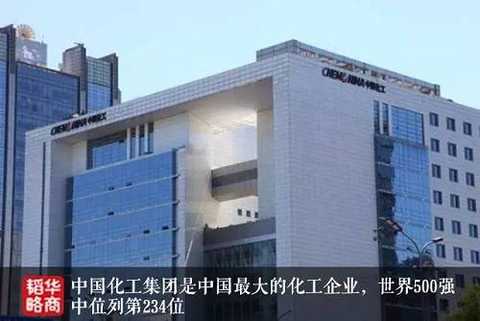
The 259-year-old Syngenta is the world's largest pesticide and third-largest seed technology company with revenue of 90 billion in 2016 and net profit of 8.4 billion. For this company, China Chemical began communication in 2009. After the acquisition was officially proposed, the two sides exchanged and negotiated for more than seven months. The process was quite difficult. 
You wear the clothes made of DuPont polyester and look out the window through DuPont plexiglass. If the sun is blazing, you can pull the curtains made of DuPont nylon. In the summer, don't forget to add DuPont's Freon to the old air conditioner. ; 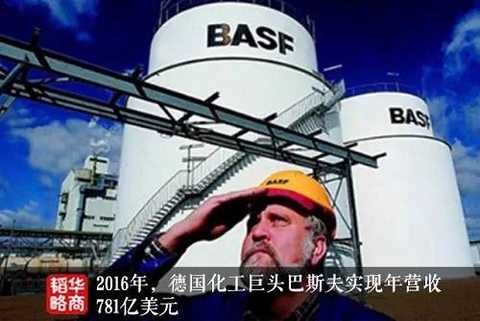
It can be said that in addition to breathing the air, almost everything you do is paying the chemical company. 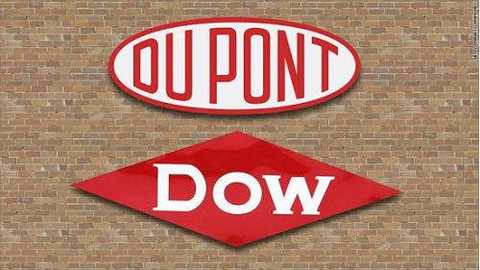
Why are the two giants rushing to merge? The world's major media have made analysis and evaluation. Of course, most of them are “nonsenseâ€, such as “integration of production capacity and sales channels, and improvement of research and development capabilitiesâ€, which makes sense in any industry merger/reorganization. 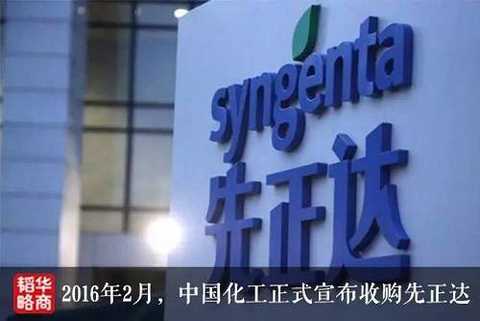
This is China's third large-scale merger of more than 10 billion US dollars, and 43 billion US dollars also broke the record of Chinalco's 14 billion US dollars acquisition of Rio Tinto and CNOOC's $15.1 billion acquisition of Nixon. 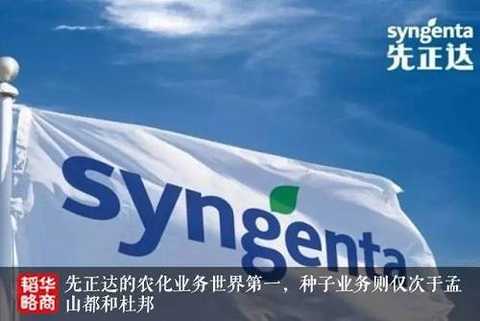
Due to its strong research and development capabilities, Syngenta's agrochemical business is the world's number one, and seed business is second only to Monsanto and DuPont. In the past few years, the company has invested heavily in smart agriculture and eco-agriculture, and is committed to providing agricultural workers with a holistic plant protection solution that is not available to other agrochemical seed giants. 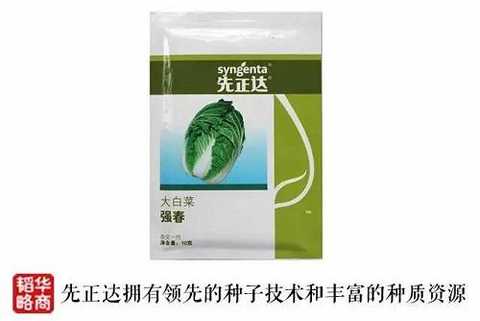
China's cutting-edge technology of agrochemicals/seeds is backward, and the level of science and technology of the entire large chemical industry is relatively backward. The industry's saying is "staying at the level of foreign countries in the 1980s and 1990s." 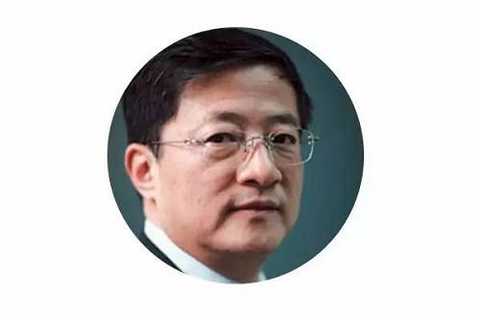
Hua Shangjun rarely introduces the heads of state-owned enterprises. Most of the people are positioned as government officials first, followed by entrepreneurs. Many audiences have natural resistance to state-owned enterprises. They believe that state-owned enterprises that rely on the state and bank resources are doing well, and they should be treated as poor.
The small team has no division of labor, and Ren Jianxin is responsible for everything. With technology, he could not find a sales. In the end, there was no way. Ren Jianxin responded to the call of the times and learned from Lei Feng to do good things. 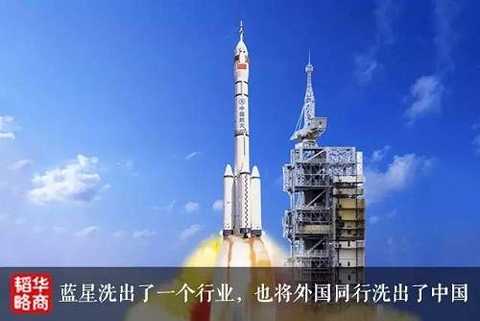
In the 1990s, Bluestar had reached the assets of several hundred million yuan. At that time, it was at the wave of retreating the country and reforming state-owned enterprises. A large number of state-owned enterprises were reorganized into joint-stock and private enterprises, and many of the first Chinese rich were born. 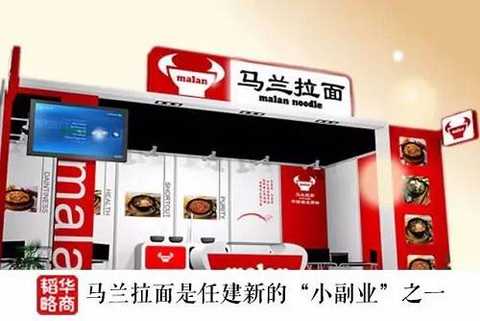
In this "small sideline business", Ren Jianxin also made great achievements. Malan Ramen has developed into one of the most successful chain restaurant brands in China. It has opened nearly 1,000 stores around the world and created more than 10,000 jobs. 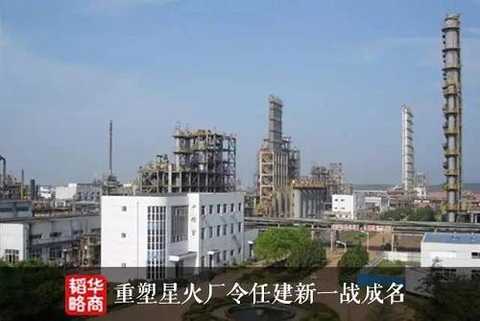
Spark assets are larger than Bluestar and have a debt ratio of 200%. The company has more than 10,000 family members, and the site is located in the ravine. The traffic is very inconvenient. From all aspects, this company that should have gone bankrupt is a mess that is uncompromising. 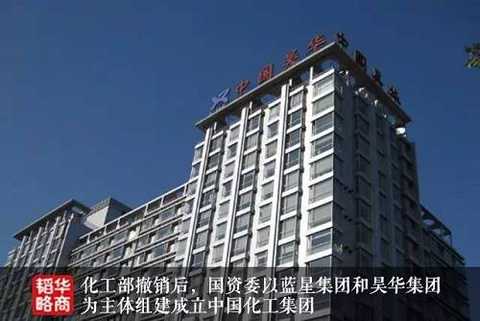
The continuous battle of iron and blood has pushed Ren Jianxin's fame to a new height. In 2004, after the withdrawal of the Ministry of Chemical Industry, the State-owned Assets Supervision and Administration Commission established the China National Chemical Corporation with the Blue Star Group and the Yanhua Group as the main body, and Ren Jianxin became the general manager of the new group. 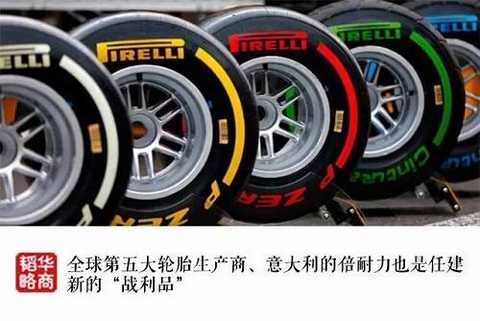
In January 2016, Ren Jianxin finalized two investments in four days. One was the acquisition of the German rubber and plastics machine manufacturer KraussMaffei Group for 925 million euros, and the strategic investment for Swiss Mercuria Energy. 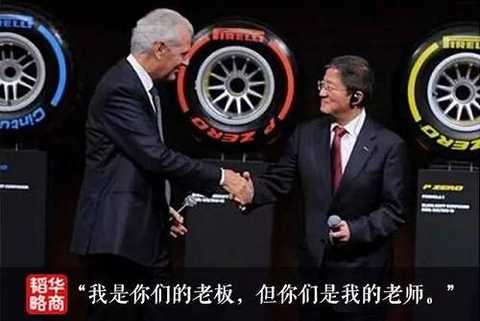
Ren Jianxin is committed to protecting the job and brand integrity of the acquired company. For example, the original executives of Pirelli still occupy half of the board. 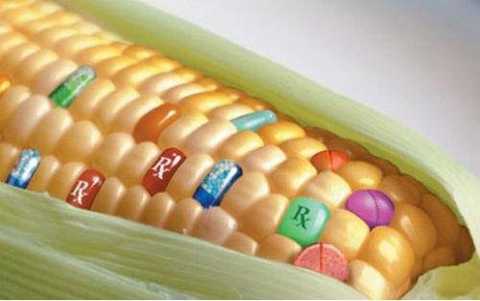
Genetic modification is an overly complicated topic, and the water inside is very deep. Hua Shangjun did not intend to make a technical analysis of the genetic modification, only the Bayer acquisition of Monsanto data for reference. 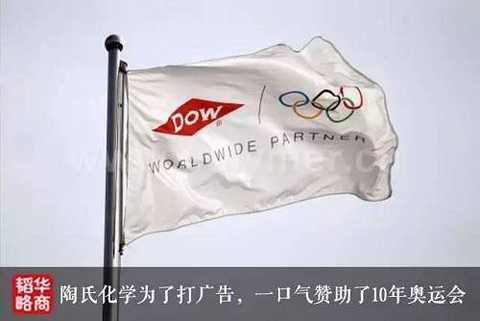
In contrast, Ren Jianxin and China Chemical have little publicity. During the acquisition of Syngenta, if you come forward to do some science and explanation, perhaps some inexplicable criticism will be reduced a lot. -- "This article only represents the author's personal views" -- 
